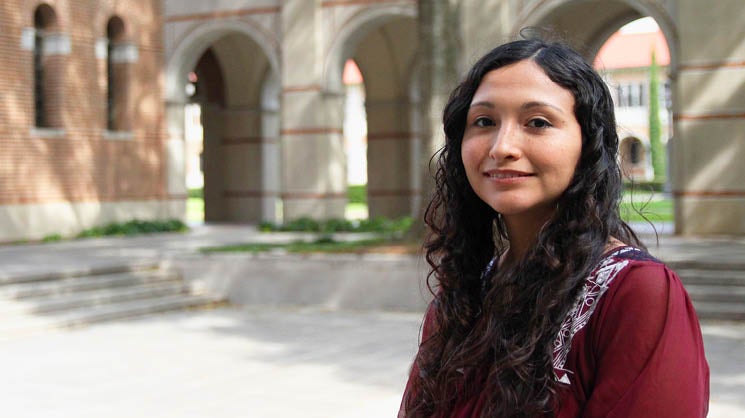Even though I attended the Gulf Coast Undergraduate Research Symposium (GCURS) more than 2 years ago while I was applying to a PhD program, I still consider it one of the best opportunities for me not only to gain insight on what admission committees wanted to see on the application, but also to see what I wanted for my own research and life as a grad student. There are already many resources available in the GCURS website on how to prepare an effective presentation and getting ready for the symposium. However, today I wanted to share some of the ways you can make use of GCURS to improve your grad school application and further define what you are looking for in a graduate program.
Visiting the University and the city
As an international student thinking about where to apply for grad school, the first thing I was excited about was to visit Rice University and, most importantly, get to know Houston and its people. GCURS was the perfect opportunity to experience firsthand Rice’s campus, its classrooms, outdoor areas, and even a graduate student bar on campus! As a student focused on STEM, I was fascinated to see the lab infrastructure and cutting-edge equipment of the BioScience Research Collaborative building, where GCURS was held. This was my first time in Houston as well, so I had several opportunities to chat with taxi drivers and people at the airport and enjoy the scenery of Hermann Park and the Museum District. I felt welcomed by the multicultural environment that characterizes Houston. Most people might not think of the city as one of their priorities when applying to grad school. However, this should definitely be the case when you think about the place you are going to be living in for the next couple of years. Due to the COVID-19 pandemic, this year GCURS is going to be held virtual on October 31st, yet there are still many ways this virtual GCURS will facilitate getting you acquainted with the university and its people, such as…
Getting to know faculty and grad students
One of the first things I did when I arrived at the university was to get introduced to the current grad students in the research area I was planning to apply to. They were very amenable to my questions about their work and advisors, and some even gave me a tour of their lab! Something really important that I learned from the current grad students was about campus life and how it helped them with their work-life balance. The Rice University Graduate Student Association and several other affiliated cultural and diversity grad student associations hold frequent get-togethers and several of their representatives were volunteering at GCURS. Participating in the symposium also gives a more direct way to contact faculty that you would like as a potential advisor and facilitates talking about grad student positions and research opportunities in their labs. Most of them would be more than happy to answer your questions by email or schedule a videocall with you in case there is not enough time during the symposium to talk.
Serves as a pre-interview weekend!
“Oh no! What if a faculty that I would like to work with in grad school does not like the research I worked with or gives me less chances for an interview with them?” This was my exact initial thought before my presentation at GCURS. Even though you might experience some presentation anxiety, especially if this is one of your first symposiums presenting research, having potential advisors watch your presentation is a good thing! Rice University faculty are among the judge members for the symposium so their feedback on your presentation would be essential to improve the way you communicate your research, especially during grad school application interviews. This is also a way to freely talk about potential research opportunities without the pressure or stress of an official admission interview.
Personalized recommendations on how to apply to certain programs
Something that no one told me about before attending the symposium is that it is worth it to apply to the GCURS section whose grad program you are thinking on applying to instead of the section that strictly adheres to your project’s research area. This is especially important because even though the main focus of your undergrad research might be on an seemingly unrelated research area that what you intend to study during grad school, you can tie-in both research areas in a “Possible applications” or “Future steps” slide at the end of your presentation, which will let the faculty know about your intentions on researching in a new area while having learned the basics of scientific research with your undergraduate experience. Most faculty, current grad students, and section coordinators will also gladly give you their advice on what to say on the personal statement or during specific interviews to give you a head start on what to expect for a program you might apply to.
While presenting in an academic environment might seem intimidating, always remember that the people attending want to know about your work, so try to take it easy and have as much fun as you can! GCURS is the best experience that allows you not only to improve your scientific communication skills, but also to get inside information that will help you during the application process to grad school.
Further Reading:
Realizing a passion for research through GCURS
How to get the most out of GCURS
Rosa Selenia Guerra Reséndez is GCURS alum, a Fulbright-García Robles Doctoral Scholar and active member of the Latin American Graduate Student Association at Rice University. She is a third-year graduate student in the Systems, Synthetic and Physical Biology program, advised by Dr. Isaac Hilton, and in 2017 earned her B.S. in Genomic Biotechnology from Universidad Autónoma de Nuevo León

